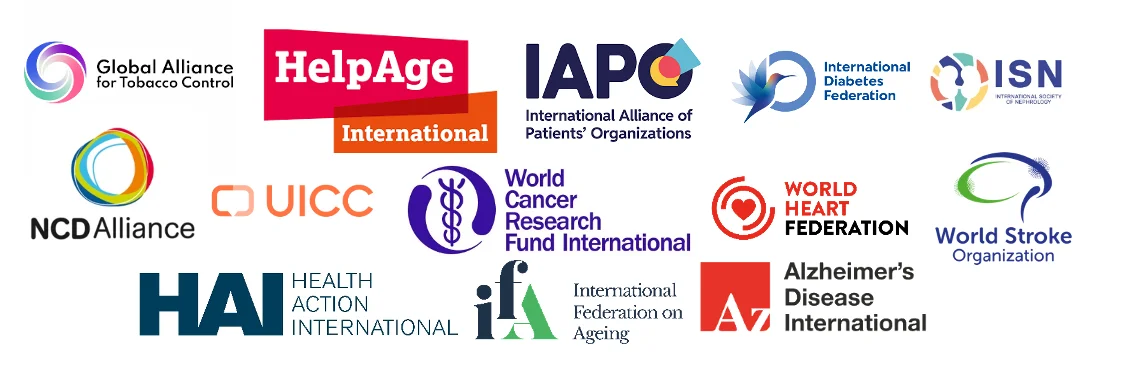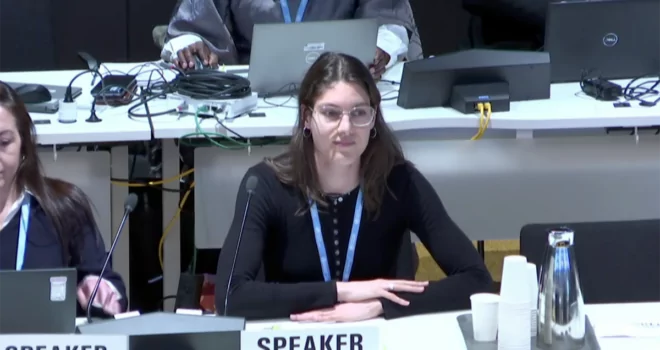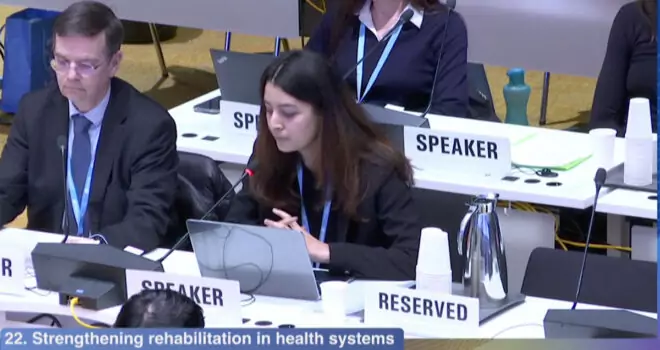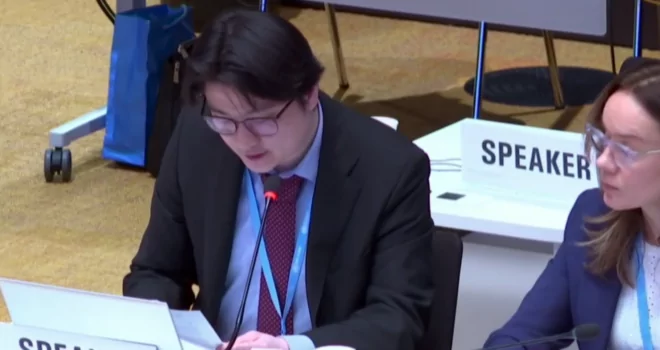-
NCD Alliance
-
Union for International Cancer Control
-
Alzheimer’s Disease International
-
HelpAge International
-
Humatem
-
World Stroke Organization
-
International Alliance of Patients’ Organizations (IAPO)
-
International Society of Nephrology
-
International Diabetes Federation
-
World Cancer Research Fund International
-
International Federation on Ageing (IFA)
-
Global Alliance for Tobacco Control (GATC)
-
Health Action International
Honourable Chair,
Distinguished Delegates,
Climate change poses serious threats to health and well-being, disproportionately affecting vulnerable groups such as children, older adults, and people living with NCDs, including CVD, kidney disease, diabetes, cancers, stroke, dementia and other mental health conditions through direct exposure, such as higher temperatures and air pollution, and indirect effects such as food insecurity and health systems disruptions. These groups may also experience heightened risks due to coexisting conditions, functional limitations, and social isolation. In 2021, an estimated 8 million deaths were attributable to air pollution, with half from heart disease and stroke.
We welcome the draft Global Action Plan, with its emphasis on intersectoral collaboration, co-benefit assessments, and strengthening evidence. We support the call for integration of health into climate processes, with attention to the specific needs of the aforementioned groups. To support implementation, we urge Member States to:
- Develop cost estimates for climate-health action, to build investment cases and communicate ROI;
- Phase down fossil fuels, which drive both climate change and air pollution;
- Prioritise people living with NCDs, children, and older adults in building more resilient and equitable health systems;
- Engage civil society and marginalised groups in planning, implementation, and evaluation of national climate and health strategies; and
- Safeguard policies from commercial and vested interests.
We urge WHO to:
- Strengthen guidance on risk forecasting;
- Develop robust progress indicators and monitoring mechanism;
- Recommend interventions to reduce fossil fuels use; and
- Provide guidance against industry interference



